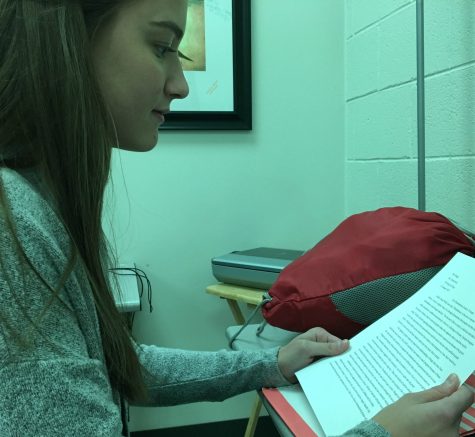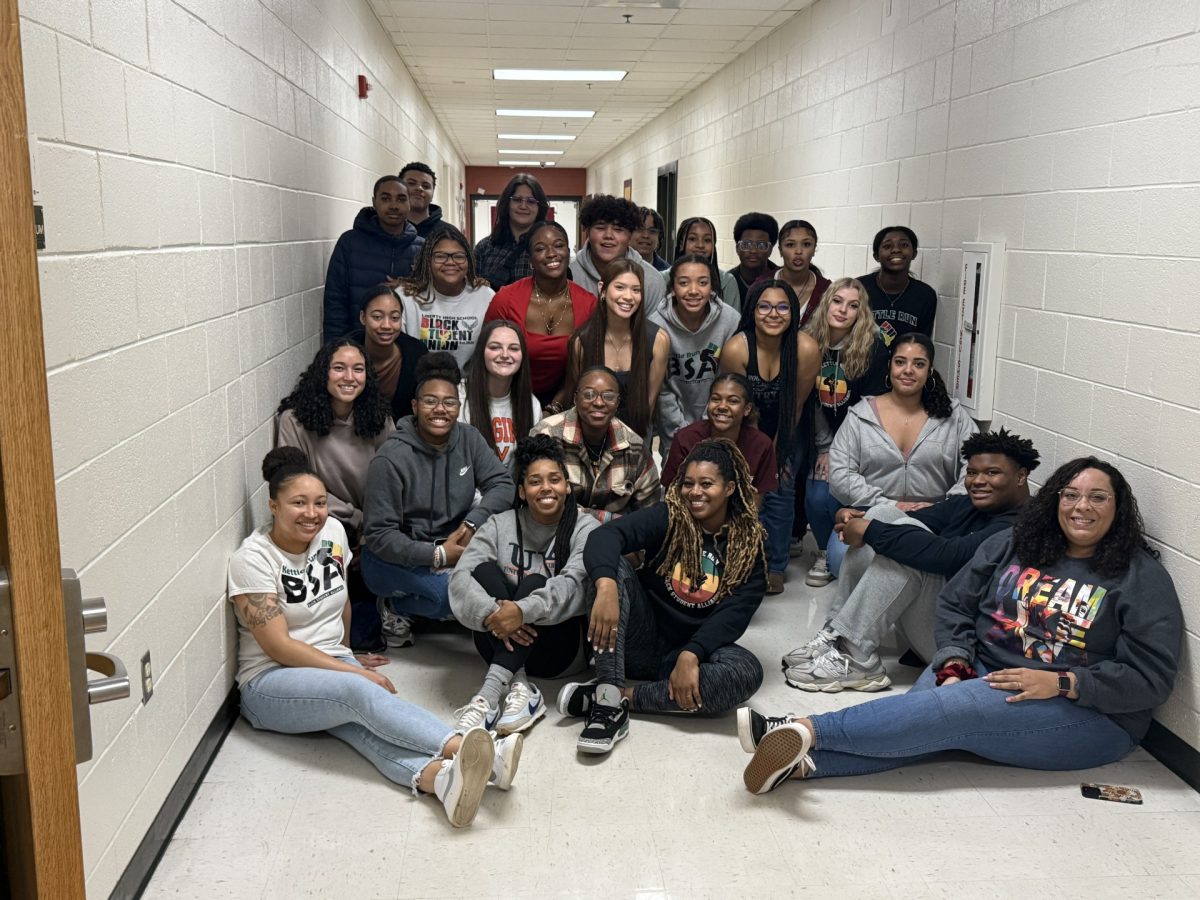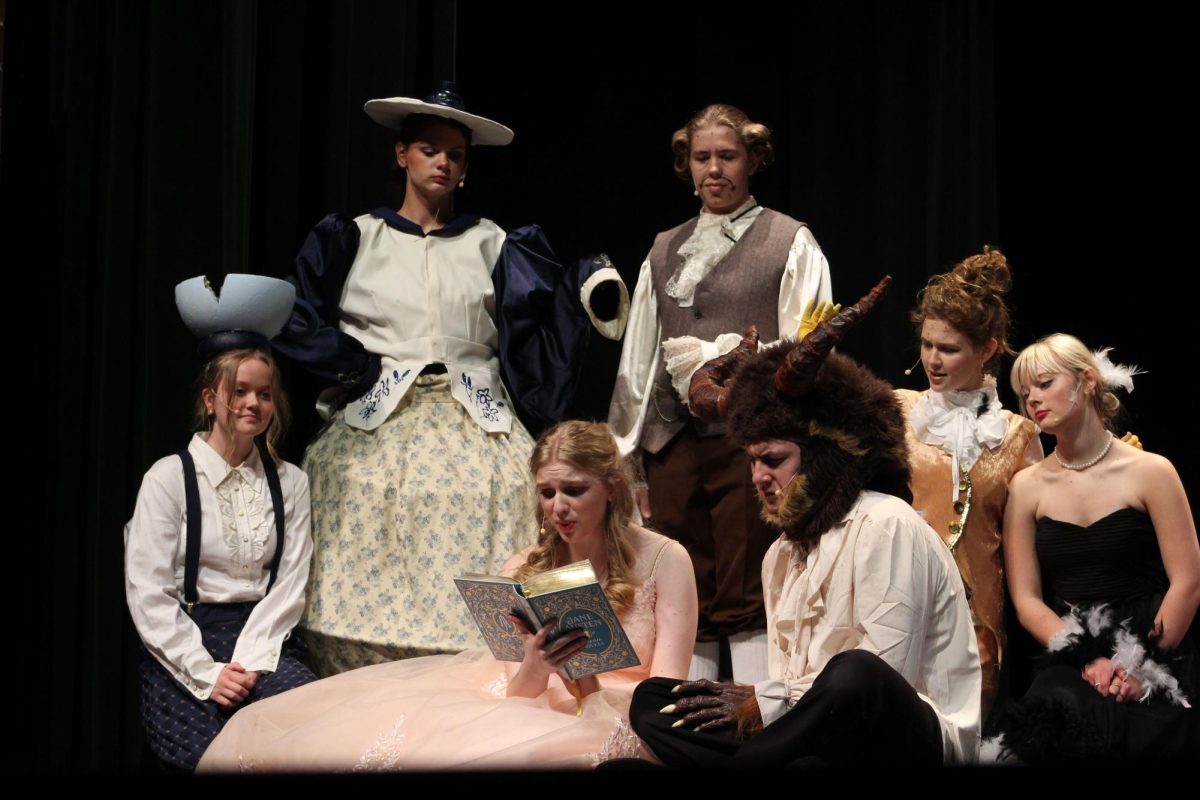How Much is too Much Homework?
Students and administrators take sides on the on-going homework debate
February 1, 2017

Junior Erin Hogge reads over a homework assignment before turning it in.
How much homework is too much? That’s the question Fauquier County School employees are focused on answering this year.
“We are currently working to evaluate our beliefs about homework and what it should look like,” Principal Major Warner said. “The conversation is long overdue.”
Although Warner believes homework is necessary at times, he also thinks it should be meaningful.
“I think as educators we all agree that learning can and should extend beyond the walls of our classrooms, but we should think creatively about what form that should take,” Warner said. “As an extension of the learning environment, or a project or something that allows students to work together, to investigate and discover, to collaborate? I think it has tremendous benefit and those are just a few examples. If it becomes routine practice that has a lot of volume with very little feedback then the value diminishes greatly.”
Superintendent Dr. David Jeck shares similar ideas on the subject.
“If it is meaningful, digestible, and varied, I think it is beneficial. In other words, a quality homework assignment might be as simple as a dinner table discussion around a certain topic, or an open-ended question that requires students to research something on the Internet. It doesn’t always have to be worksheets or 30 math problems out of the textbooks. It is important that homework take on many forms,” said Jeck. “In my opinion, no more than one hour [of homework] per night on average.”
Both Jeck and Warner understand that students have a lot going on in their lives and they think that should be taken into consideration by teachers.
“Students today are much more involved in after school activities than we (us old people) were, and they are pulled in many directions,” Jeck said. “The balance you are referring to is becoming harder and harder to find.”
Warner agreed, “They should take into consideration all that goes on in a student’s life. Our students are active in their schools and communities, and I think a worthwhile question to ask is can we assess what we want our students to know in ways other than lengthy homework assignments?”
Sophomore Tyler McAnany doesn’t mind having homework.
“I think it’s good because it keeps me from slacking and keeps me busy,” McAnany said. “It gives me a purpose.”
Sophomore Claire LaFleur also does not mind homework.
“I think that it is good in moderation but that it shouldn’t be excessive,” LaFleur said.
“I think it really just depends on the assignment,” freshman Jon Spitz said.
When throwing other after-school activities into the mix, students have to find a balance between school work and the other things they are expected to do.
“To balance school, sports, and extracurricular activities, I have to manage my time as well as possible,” junior Gracie Crater said. “I also set time limits for myself to make sure I finish certain assignments on time and move on. Some days I just have to be prepared for a super late night in order to finish everything, From personal experience, I believe that most of the stress stems from poor time management. But, I do think that the homework amount causes stress for students.”
The amount of homework given is ultimately up to the teacher, but Crater thinks that any assignments given should have purpose and benefit the learning process of the students in some way.
“If the work is simply ‘busy work,’ I don’t think it’s beneficial because many students have other work to focus on,” Crater said.
Warner said the topic is tough because there is not a one-size-fits-all answer.
“Putting a time limit on it is tough because every subject is different,” Warner said. “I do think we should plan homework with time and ability levels of every student in mind. I believe a lot of teachers take what students do beyond the classroom into consideration. Bottom line is if you value it and want it back you have to take volume and time into consideration and provide timely feedback to students.”
The topic of homework came up over the summer during a principals’ meeting.
“My personal feelings, as it is for many of us, is that homework has real value,” Warner said, “but we have to make it more authentic and purposeful. Practice just for the sake of practice doesn’t accomplish what we are looking to do with students.”
Warner hopes this conversation will generate change.
“I am hopeful that what will come out of the conversation is a renewed look and application of a long-standing educational practice,” Warner said.






















